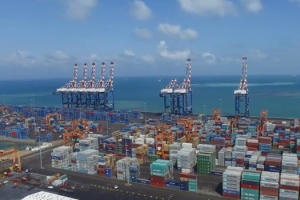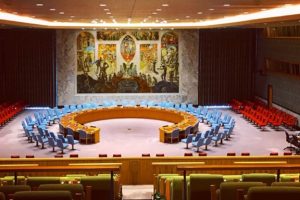
When it comes to global security issues, five countries hold the power to make decisions that impact the entire planet, regardless of whether the issues directly affect them. These countries are the permanent members of United Nations Security Council (UNSC) including the United States, Russia, China, the UK, and France, the highest decision-making body for global security matters. In addition to these permanent seats, there are 10 seats allocated to non-permanent members.
Unfortunately, Africa, a continent plagued by numerous security challenges, is not represented by a permanent seat on the UNSC. Despite advocating for a permanent seat at the UNSC, Africa has yet to receive a just response. This glaring absence of African representation in the Council is a historical injustice, as highlighted by the UN Secretary-General.
Africa’s absence becomes even more pronounced when its security and political concerns are being discussed and debated by powerful nations with veto powers. Over the years, the Council’s unequal and unfair representation has drawn criticism, with many perceiving it as a means for member countries to manipulate global geopolitics. Recently, United Nations Secretary-General Antonio Guterres labeled Africa’s exclusion from the UNSC permanent seat as a “flagrant injustice.”
Established on January 17, 1946, the Security Council lies at the heart of an unjust global system. For decades, the African Union and its member countries have persistently raised the issue of Africa’s rightful place on the UNSC. However, the quest for a permanent seat has been relegated to the back burner, with no meaningful response thus far.
According to Ambassador Jorge Catarino Cardoso, Director of the Africa, Middle East, and Regional Organizations Directorate of the Angolan Ministry of Foreign Affairs, African countries have lacked representation and the ability to safeguard their interests at the UNSC for over 70 years. “Africa faces a myriad of security and peace challenges, yet discussions pertaining to these issues often exclude African nations’ presence and voices,” emphasized the ambassador during an exclusive interview with The Ethiopian Herald.
Currently, Africa’s representation on the UNSC is through the A3, a group of non-permanent members. However, Ambassador Cardoso stressed the need to transform this temporary arrangement into a permanent feature of the Security Council. The absence of permanent African seats on the UNSC creates an imbalance that fails to adequately represent the interests of the African people, as highlighted by Ambassador Salah S. Hammad, Senior Human Rights Expert of the Department of Political Affairs of the African Union Commission (AUC).
To address this imbalance, the African Union established the C10, a committee comprising ten heads of state and government, chaired by the President of Sierra Leone. The committee’s mandate is to advocate for a minimum of two permanent seats for Africa on the Security Council, along with an increase in non-permanent seats to five, ensuring rotational representation from each region of Africa.
During the 37th Ordinary Session of the Assembly of the Heads of State and Government, securing Africa’s rightful place in the global arena ranked high on the agenda. AUC Chairperson Moussa Faki Mahamat emphasized the need for concerted efforts to secure Africa’s representation.
Ambassador Salah underscored the urgency for change to enable Africa to contribute to building a stable, united, prosperous, and peaceful continent. He expressed eagerness for immediate outcomes from the ongoing negotiations through the C10 to secure Africa’s permanent representation in the Security Council.
Africa’s persistent advocacy for a permanent seat stems from the desire to ensure that the interests of the continent, with its vast population, abundant resources, and human capital, are adequately represented in global decision-making processes. This push aligns with Agenda 2063, a strategic framework led by the African Union, which aims to secure comprehensive representation for Africa in the international arena, including United Nations reform. Ambassador Salah emphasized that Africa’s voice needs to be heard on global issues, leading to growing intentions to assume leadership positions in various UN agencies.
Ambassador Jorge acknowledged that Africa has initiated the process of securing at least two permanent seats for the continent, aligning with the Ezulwini Consensus, which outlines Africa’s views on how peace and security issues should be addressed at the UN. Moussa Faki emphasized the importance of collaboration among all concerned parties to strengthen a peaceful and prosperous Africa. Recurring conflicts, often fueled by militants and coup d’états, have hindered Africa’s progress towards a brighter future.
While some support exists among the five permanent members for at least one African permanent seat, Guterres expressed hope that a partial reform of the Security Council could correct this injustice and allow Africa to have at least one permanent member.
As Claver Gatete, the United Nations Under-Secretary and Executive Secretary of the Economic Commission for Africa (ECA), recently stated, Africa, with its 20 percent share of the global population and vast untapped natural resources, including its human capital, must have its rightful seat at the global table.
Reflecting on the creation of the UN in 1945, Gatete pointed out that the five permanent members of the Security Council – China, the United States, the United Kingdom, France, and Russia – accounted for nearly 50 percent of the world’s population at that time. However, today, that figure has dwindled to just 26 percent. This shift emphasizes the need for a more inclusive and representative Security Council that takes into account the changing dynamics of the global population.
As whole, Africa’s exclusion from the United Nations Security Council is a historical injustice that must be rectified. With Africa increasingly becoming a target for conflicts, militants, and coup d’états, it is imperative that the continent has a permanent seat on the UNSC to effectively address its security and peace concerns. The African Union’s efforts, through the C10 committee, to advocate for Africa’s representation and the ongoing negotiations for reform are crucial steps towards achieving this goal. As the world moves forward, it is time to ensure that Africa’s voice is heard and its interests are adequately represented in global decision-making processes.
BY EYUEL KIFLU
THE ETHIOPIAN HERALD WEDNESDAY 13 MARCH 2024





